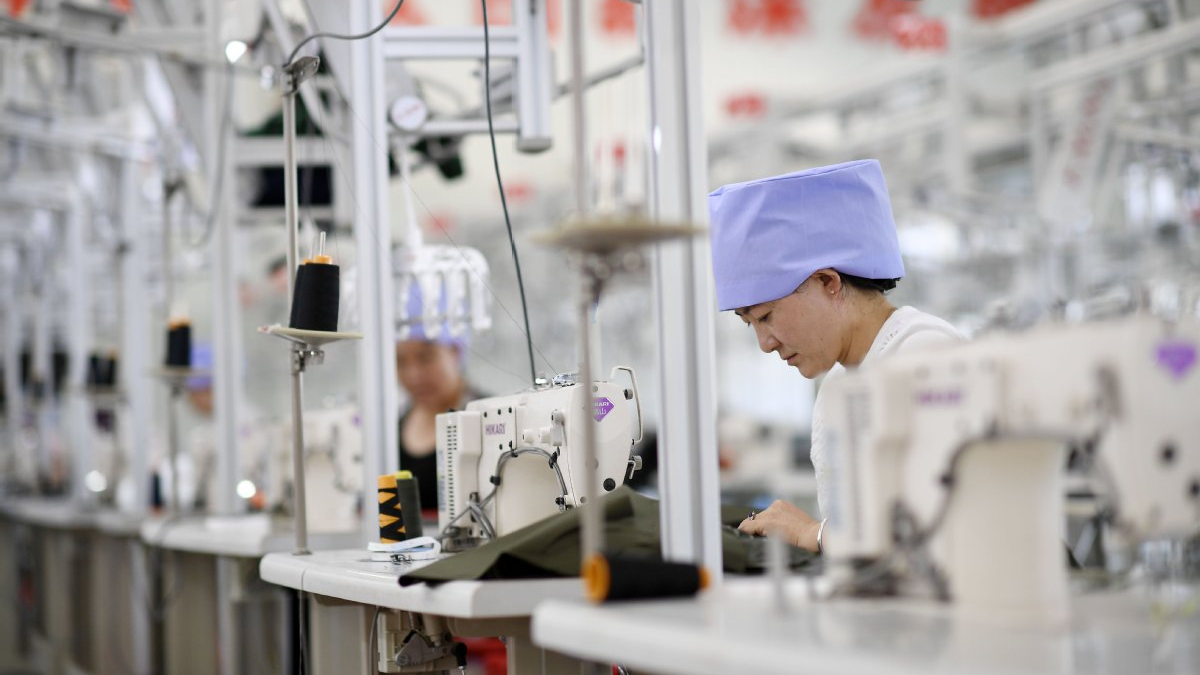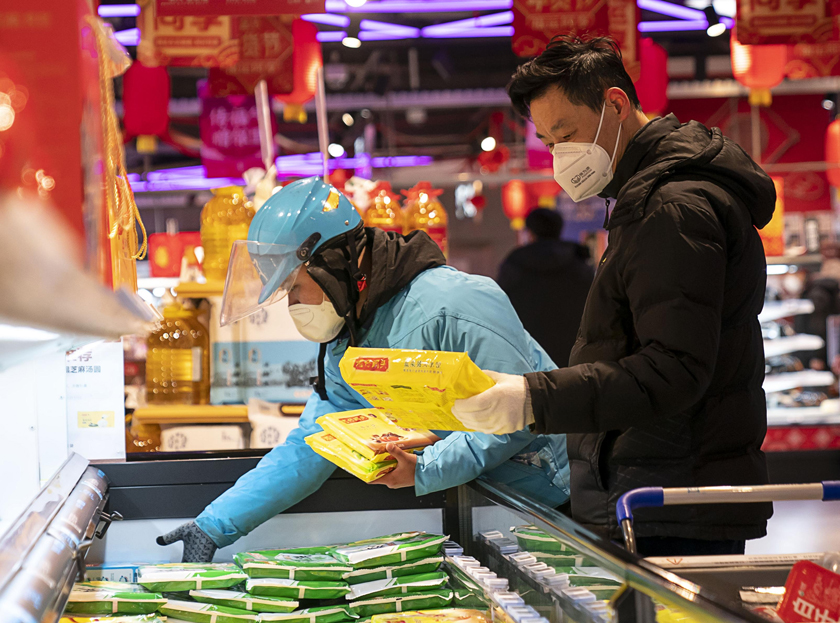Wang Huiyao: Protecting SMEs should be the second COVID-19 battlefield
February 21 , 2020

An employee uses a sewing machine in a clothing company in Tongxin county, the Ningxia Hui autonomous region. /Xinhua
By Wang Huiyao |
President of the Center for China and Globalization(CCG)
Since January 2020, the COVID-19 outbreak has affected every aspect of Chinese society. With the escalation of prevention and control measures as well as the joint efforts in all sectors of society, hopefully it will be possible to curb the further spread of the virus. But inevitably, the impact of the long-lasting epidemic on the domestic economy, especially on the small- and middle-sized enterprises (SMEs), is emerging.
During the outbreak, many companies, especially SMEs from the catering sector and tourism industry, have been suffering heavy losses and even facing the risks of bankruptcy due to the disruption of logistics, instability of the supply chain, and the plunge in demand.
Some SMEs which are experiencing the twofold difficulties of both being short of funds and a sluggish market, are on the verge of bankruptcy.
Meanwhile, many poultry farms are also suffering heavy losses due to lack of feed, poor logistics and market contraction.
As the backbone of China’s economy, SMEs provide more than 80 percent of urban employment. If the epidemic lasts too long, it will be difficult for many enterprises to survive.
SME bankruptcies could worsen unemployment, cause economic slowdown and loss of income. At this critical moment, protecting SMEs should become the second battleground against COVID-19. The government and big corporations should take an active role in helping the SMEs to get through this crisis.

A deliveryman collects frozen food at a store of Hema Fresh in Wuhan, capital of central China’s Hubei Province, Janurary. 27, 2020. /Xinhua
From the government side, there are two main points to consider. First, it should support the restoration of some business activities on the premise that the spread of COVID-19 is under control. Besides, governments should ensure the normal working order of logistics services, the supply chain and industrial chain instead of suspending all the production and operation activities. Second, governments at any level could work out special supportive policies for SMEs in terms of salaries, social security payments and bank credit, which are deeply concerned with SMEs, such as establishing special funds, reducing charges, taxes and interest rates, delaying the deadline for income tax and social insurance payments, reducing rents, and extending financing channels to lower running costs.
As SMEs, they are also supposed to actively protect themselves by increasing revenues, reducing expenditure and seeking opportunities during the hard times by giving impetus to management innovation and transition. As is known, the epidemic has inflicted heavy losses on offline retail, catering business, tourism, and educational institutions. But at the same time, there are some new points emerging from the tertiary industry, such as the online retail, online medical care, online games, and logistics and express services.
Enterprises can adjust their business models in accordance with the new consumption
trends, and can also extend channels of business and innovate corporate cooperation models, such as online business, employee sharing and telecommuting to enhance their ability to resist risks.
In a short term, the outbreak of COVID-19 has hit severely hit China’s economy. But in a long term, with a solid economic base, the momentum of China’s economy developing to new levels will not change. Given the influence of the epidemic, China’s economy may suffer severely in the first quarter. But the business that was forced to suspend in the first quarter is likely to recover in the next three quarters.
This COVID-19 epidemic subjects the government to a test and has revealed some problems that need to be improved. But this epidemic has also once again shown that the perseverance and solidarity of the Chinese people and enterprises at a time of crisis which are the source of the strength for our country’s prosperity.
At present, even though the epidemic is ongoing, it is necessary for the whole country and all sectors of society to work together to fight against the virus, as well as save SMEs and avoid the economic slump. In this battle, no one can stay aside. We are all looking forward to the end of the epidemic and the return of normalcy as soon as possible.

Dr. Wang Huiyao is
president of the Center for China and Globalization(CCG),
the largest independent think tank in China, with over 100 researchers
and members of staff.
Topical News See more






